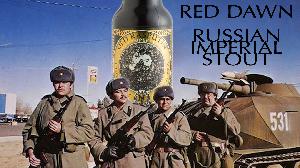Beers for the Earth – Episode 11.2.17
Description
On this week’s show, we discuss spiders and lambic, the always delicious Taco Bell, and how beer can save the planet. And oh yeah, Rogue f*cks us again!
Members of the press are invited to attend the inaugural COBREW-Fest on November 6, 2017 at Lolo Peak Brewing in Lolo, MT. COBREW, Inc. is hosting the brewfest, which is the first to focus on “Celebrating Sustainable Brewing.” The event will feature tastings of beers which have been carbonated with carbon dioxide that has been recaptured and recycled from the brewing process.
Lolo Peak Brewery is the first and only brewery in Montana to utilize COBREW technology, which collects, stores, and converts greenhouse gases emitted during the brewing process into a high- quality brewing ingredient, called COBREW. This technology can reduce a brewery’s greenhouse gas emissions up to 90%, and reduce the cost as much as 25%. COBREW, a brewing technology company in Missoula, MT, engineered and built the CO2 recycling system to work with small to medium-sized craft breweries.
Brewfest attendees will have the opportunity to taste Lolo Peak Brewery’s handcrafted beers, which have been carbonated using COBREW, for the first time at COBREW-Fest.
For more information or to arrange an interview, contact Taylor Woods at 406-868-1155 or taylor.woods@cobrew.com. Learn more about COBREW at www.cobrew.com and keep up with us on Twitter, Instagram and Facebook at cobrewofficial.
Climate change is hurting craft breweries
Small breweries in the Pacific Northwest are struggling with a shortage of hops, a key ingredient in beer. Washington, Oregon and Idaho grow almost all the hops in the country, according to the US Department of Agriculture, and those states have seen increasingly harsher droughts over the past few years.
Two years ago, an unusually warm winter led to widespread drought in Washington’s Yakima Valley, a situation that could repeat itself this year. Scientists say these warm winters will likely become standard in another 50 years.
“We are reaching this kind of tipping point,” said NASA climate scientist Joshua Fisher. “What we’ve been used to in terms of how much rain we’re going to get and how plants grow is no longer the norm.”

Ultimately, a smaller crop means hops, and the beer it goes into, becomes more expensive, reports CBS Los Angeles’ Chris Martinez.
The US produces about one-third of the world supply of hops, with Germany responsible for another third. But American output dropped by about a quarter last year, thanks to climate change effects.
In the US, some farmers in other states are trying to grow hops, while others are investing in conservation technology to make the most out of the water they do have or switching to other sources of water, like groundwater. That last method has had mixed results because it changes the taste of beer and can lead to long-term groundwater depletion.
Dozens of breweries have also signed on to a “Brewery Climate Declaration,” agreeing to take steps to limit climate change such as using renewable energy sources in their production process.
THE BEERS (and cider)
Sriracha Hot Stout | Rogue Ales
- L: Poured into a narrow pint glass: color is solid black, head is tan, fine bubbles, presents 1/2 inch thick.
- A: Smell is prototypical chili stout – lightly vegetal, hints of chili pepper spice, moderate roast backbone.
- T: Taste is similar with a light heat that presents at the start and lingers, moderate roast flavors, hint of neutral malt sweetness.
- M: Mouthfeel is light sweetness, lingering spiciness.
Western Cider Whiskey Peach Cider
- 11%
Traquair House Ale | Traquair House Brewery Lld
- Look: dark reddish brown with a thin head that dissipates quickly and leaves a bit of lacing.
- Smell: fruits, boozy, bit of caramel
- Taste: roasted malt, caramel, bit boozy, bit of oak, peat, touch of mocha
- Feel: a bit thin, not much carbonation









